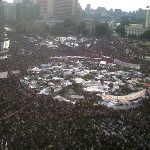Click here to read the Analysis in English
Click here to read the Analysis in Arabic
“The draft Constitution contains some encouraging provisions, such as a guarantee of freedom of expression using any medium, recognition of the right to information and a shift away from licensing of newspapers,” said CLD Executive Director Toby Mendel. “But the draft signally fails when it comes to constraining the ability of the State to restrict freedom of expression where, instead of a clear and modern test based on necessity in line with international standards, there are references to principles deriving from one religious tradition and a range of general political, social and economic goals.”
Some of the more serious problems cited in the Analysis are that the draft Constitution:
• protects only the right to impart, but not to seek and receive, ideas;
• fails to clarify that the right of access applies to information held by public bodies;
• fails to establish a clear obligation on the State to grant licences for commercial and community stations to broadcast over the airwaves;
• envisages legal regulation of the establishment of Internet media;
• envisages restrictions on freedom of expression being justified by reference to the Principles of Islamic Sharia and a range of social goals; and
• imposes a number of broad and problematical direct restrictions on freedom of expression, including by prohibiting “insult or abuse” of religious messengers.
It is imperative that at least the more serious of these problems be addressed. We call on the authorities to revise these provisions before the Constitution is adopted.




